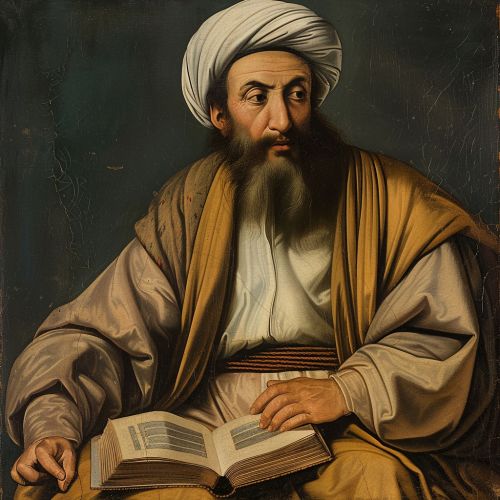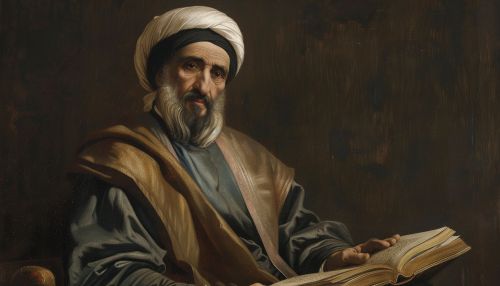Ibn Rushd
Early Life and Education
Ibn Rushd, also known as Averroes in the Western world, was born in 1126 in Córdoba, in present-day Spain. He hailed from a prominent family of scholars and jurists. His grandfather, Abu al-Walid Muhammad, served as the chief judge of Córdoba, a position that greatly influenced Ibn Rushd's early education and intellectual development. He received a comprehensive education, studying various subjects including Islamic jurisprudence, theology, medicine, and philosophy.
Philosophical Contributions
Ibn Rushd is best known for his extensive commentaries on the works of Aristotle. He wrote detailed exegeses on nearly all of Aristotle's works, including "Metaphysics," "Nicomachean Ethics," and "De Anima." His commentaries were instrumental in the transmission of Aristotelian philosophy to the Latin West and significantly influenced medieval European thought.
Ibn Rushd's philosophical system is characterized by his advocacy for the harmony between philosophy and religion. He argued that both paths lead to the same truth and that the apparent contradictions between them are due to misunderstandings. His work "Tahafut al-Tahafut" (The Incoherence of the Incoherence) is a critical response to Al-Ghazali's "Tahafut al-Falasifa" (The Incoherence of the Philosophers), defending the role of philosophy in understanding the divine.


Medical Contributions
In addition to his philosophical works, Ibn Rushd made significant contributions to the field of medicine. His most notable medical work is "Kitab al-Kulliyat fi al-Tibb" (The General Principles of Medicine), commonly known as "Colliget" in Latin. This comprehensive medical encyclopedia covers various aspects of medicine, including anatomy, physiology, pathology, and pharmacology. It was widely used in both the Islamic world and medieval Europe.
Ibn Rushd's medical writings emphasize the importance of empirical observation and rational analysis. He advocated for the systematic study of diseases and their treatments, laying the groundwork for modern medical practices.
Legal and Theological Works
Ibn Rushd also contributed to Islamic jurisprudence and theology. His legal writings include "Bidayat al-Mujtahid wa Nihayat al-Muqtasid" (The Distinguished Jurist's Primer), a comparative study of various Islamic legal schools. This work is still regarded as a significant reference in the field of fiqh (Islamic jurisprudence).
In theology, Ibn Rushd wrote "Fasl al-Maqal" (The Decisive Treatise), where he argued for the compatibility of Islam and philosophy. He posited that the Quran encourages the pursuit of knowledge and that philosophical inquiry is a legitimate means of understanding divine truths.
Influence and Legacy
Ibn Rushd's works had a profound impact on both the Islamic world and medieval Europe. His commentaries on Aristotle were translated into Latin and Hebrew, influencing notable European scholars such as Thomas Aquinas and Albertus Magnus. In the Islamic world, his ideas contributed to the development of rationalist thought and the integration of Greek philosophy into Islamic intellectual traditions.
Despite facing opposition from conservative religious scholars, Ibn Rushd's legacy endured. His works continued to be studied and respected, and he is remembered as one of the greatest philosophers and polymaths of the medieval period.
